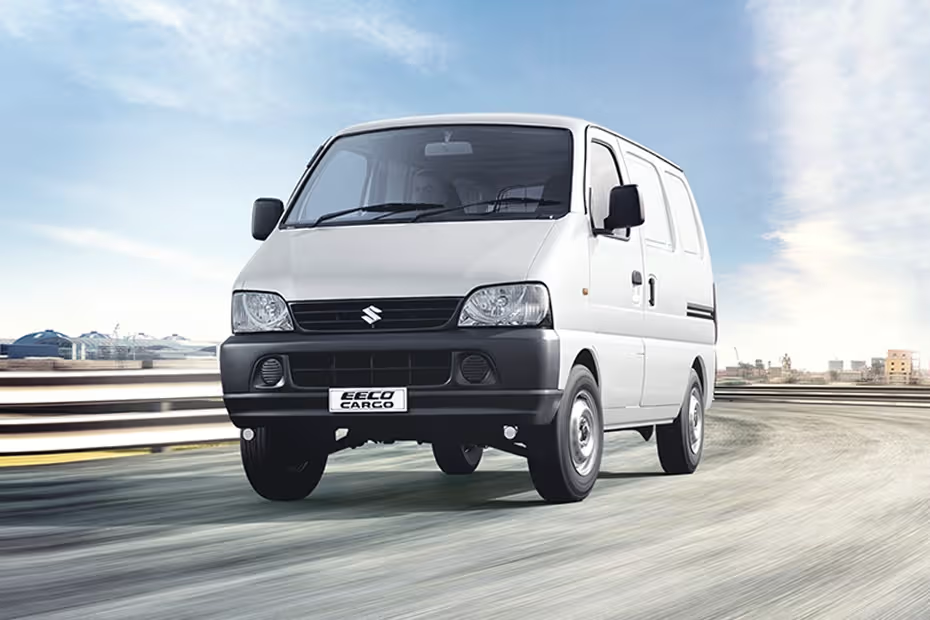


When thinking about Maruti Suzuki, most people picture hatchbacks like the Swift, WagonR, or SUVs like Brezza. But did you know that Maruti Suzuki also has a robust commercial vehicle segment? These include light commercial trucks and vans used for transporting goods and people. In this blog, we'll explore how many total cars are there in Maruti Suzuki commercial segment, covering the models, recent sales figures, and what makes them stand out in India’s commercial vehicle landscape.
Maruti Suzuki defines its commercial segment as vehicles designed primarily for business use—moving goods or passengers. These include:
Goods carriers:
Super Carry: A mini-truck designed for last-mile goods delivery.
Eeco Cargo: A cargo version of the popular Eeco van.
Passenger carriers (used as minibuses or taxis):
Tour H1 and H3 (compact carriers),
Tour S, Tour M, and Tour V, which cater to larger groups.
Maruti categorizes them separately from its passenger vehicles focused on personal use.
To understand how many total cars are there in Maruti Suzuki commercial segment, let’s examine the latest available figures:
Maruti's Super Carry is the flagship LCV. In the financial year 2024–25, it sold 34,492 units nationwide—up from 33,763 a year earlier.
Monthly figures show consistent volume: June 2025 saw 2,433 Super Carry units sold.
While Maruti doesn’t separately report sales for Eeco Cargo, the combined Eeco family (passenger + cargo) booked 135–137K domestic units annually .
If we conservatively estimate 10–15% of Eeco sales as cargo variants, that suggests 13,500–20,500 Eeco Cargo units annually.
Maruti Suzuki’s official commercial website claims “2.2 LAC+ commercial vehicles sold”, which refers to cumulative sales since the segment launched
Annual sales for Tour variants aren’t public, but even modest monthly volumes (e.g., 500–1,000 units) would amount to 6,000–12,000 yearly across all Tour models.
Bringing together these numbers, we can estimate:
|
Segment |
Units per year (approx) |
|
Super Carry (LCV) |
34,500 |
|
Eeco Cargo |
15,000 |
|
Tour H/S/M/V (Passenger) |
9,000 |
|
Estimated Total |
≈ 58,500 |
So, based on sales data from FY 2024–25, a realistic estimate shows there were around 58,000–60,000 commercial vehicles sold annually by Maruti Suzuki.
The Maruti Suzuki Super Carry is a versatile mini-truck available in both petrol and CNG options. It is engineered for fuel efficiency and low operating costs, making it an ideal choice for transporting light cargo through dense urban routes. With its compact build and dependable performance, the Super Carry is a top pick for small-scale logistics and commercial operators.
The Maruti Suzuki Eeco Cargo is a cost-effective cargo van designed to handle high load capacities. Built on the trusted Eeco platform, it combines durability with functionality, making it an excellent solution for businesses involved in delivery and goods transportation. Its spacious cargo area and low maintenance needs make it a practical commercial vehicle.
The Maruti Suzuki Tour Range features a variety of passenger carriers suited to different transport needs. Models like Tour H1 and H3 are compact and perfect for city shuttle services, while Tour S, M, and V offer larger capacities ideal for group transport, driver-based services, and tourism. The Tour Range is designed for comfort, efficiency, and long-term reliability.
Together, the Maruti Suzuki Super Carry, Maruti Suzuki Eeco Cargo, and Maruti Suzuki Tour Range provide small businesses, entrepreneurs, and fleet owners with dependable, affordable, and low-maintenance commercial vehicle solutions built for Indian roads and business environments.
Maruti Suzuki has capitalized on India's demand for efficient, economical commercial vehicles. Highlights include:
Increasing Super Carry and LCV sales: From 33,763 (2023–24) to 34,492 (2024–25)
The broader Eeco platform also shows resilience, with over 135K annual sales
Cumulative commercial sales overshot 220,000 units since launch .
These numbers reflect a growing reliance on Maruti Suzuki for light commercial mobility.
Maruti’s commercial segment faces competition from:
Tata Ace and Mahindra Supro among mini-trucks.
Local manufacturers and small EV startups for last-mile cargo.
For passenger carriers, companies like Force Motors, Toyota, and Ashok Leyland offer alternatives.
Yet Maruti’s extensive service network, reliable parts ecosystem, and brand trust give it a distinct edge.
Rising e-commerce and hyperlocal delivery boost demand.
Expansion in goods and people transport, especially in Tier II/III markets.
Options like petrol and CNG meet diverse fuel preferences.
Transition to electric commercial vehicles may require new investments.
Escalating regulatory standards (safety, emissions) could raise costs.
Margin pressure in a price-sensitive segment.
Why should Maruti remain optimistic? Continuous updates, like introducing ESP in Super Carry, broader dealer network, and integrated logistics solutions hint at growth potential
So, how many total cars are there in Maruti Suzuki commercial segment? A close look at recent FY 2024–25 data suggests annual volumes hover around 58,000–60,000 units, led by Super Carry, Eeco Cargo, and the Tour family. Cumulatively, Maruti has sold over 220,000 commercial vehicles to date.
As India’s economy grows, Maruti’s commercial lineup—backed by affordability, fuel options, and widespread service access—appears well-poised to serve drivers, entrepreneurs, and fleet operators alike.
If you’re keeping your commercial Maruti on the road, consider scheduled servicing, genuine spare parts, and proactive maintenance. For those in Mumbai and throughout India, I highly recommend checking out Sai Service. They specialize in comprehensive, reliable care for Maruti commercial vehicles tailored to your business needs.